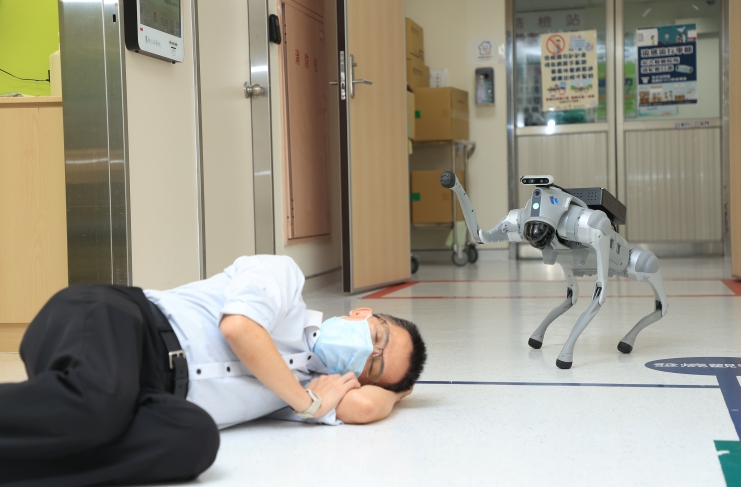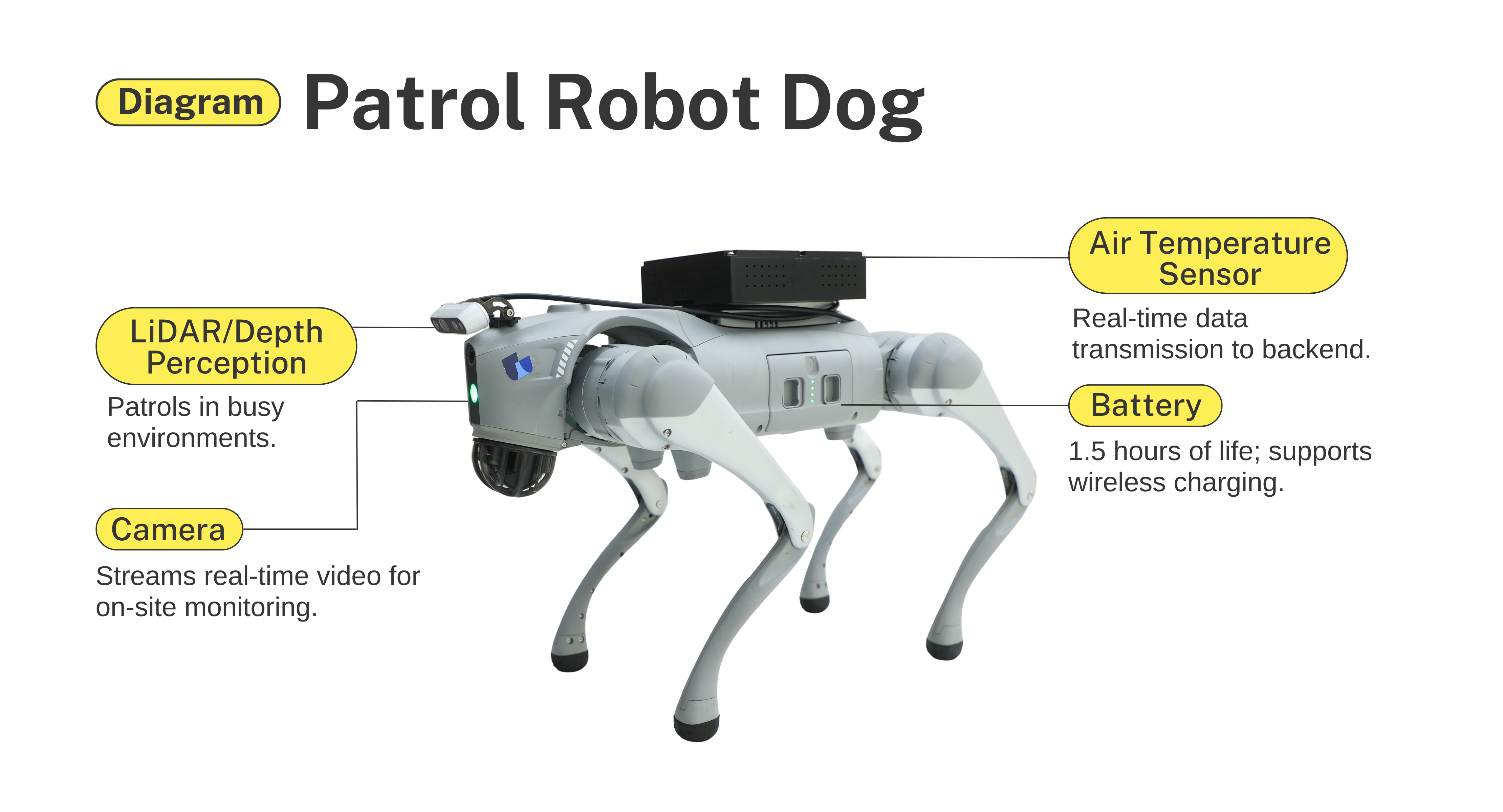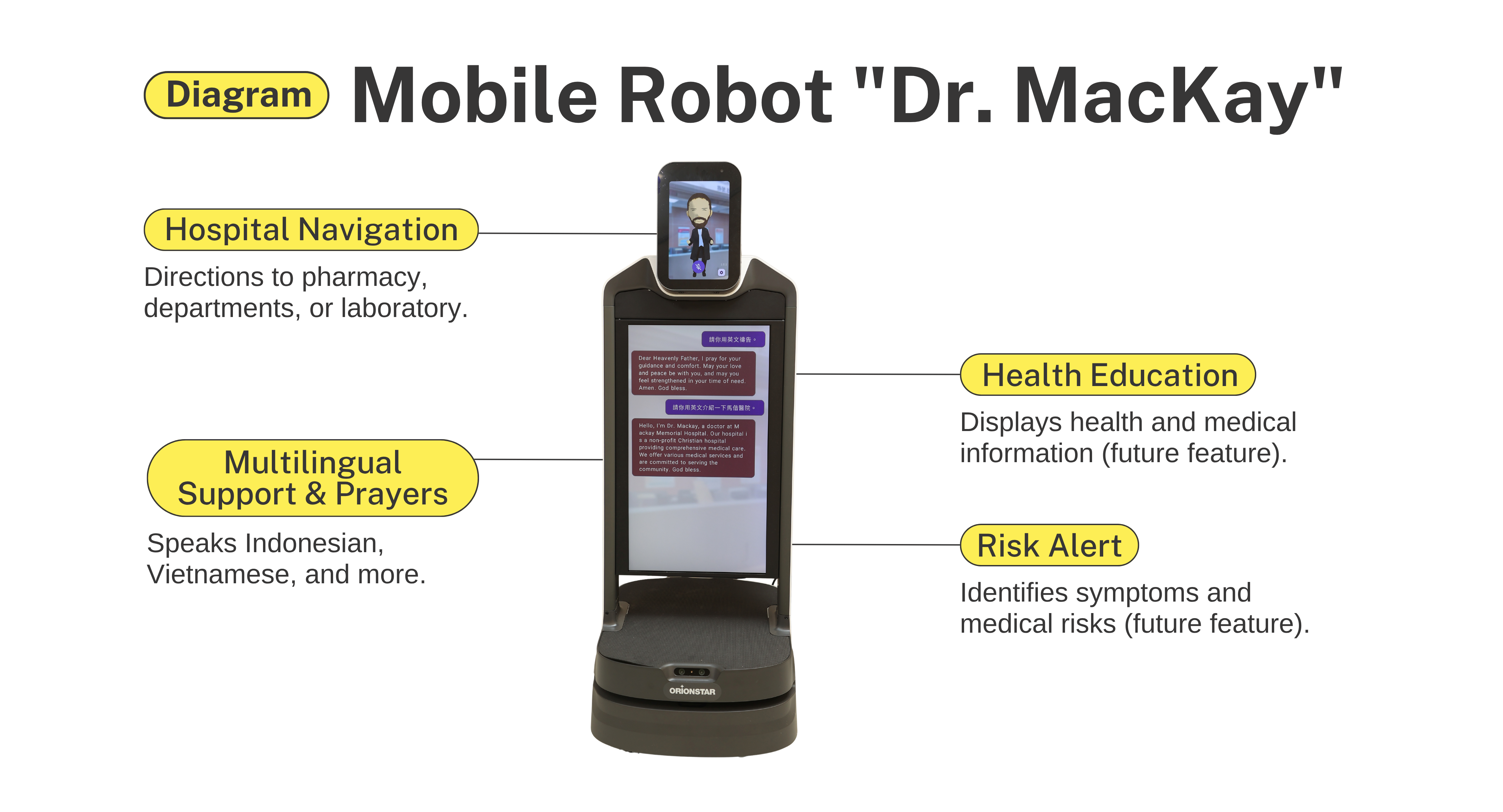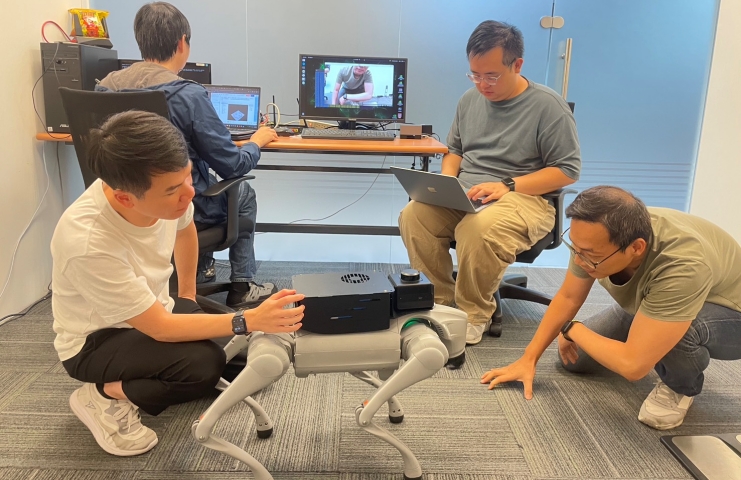
New Assistant for ER Heroes: Robot Dog — MacKay × Ubitus Take on the Toughest Training
2025-10-23
Source: IBMI (2025 Healthcare+ Expo Taiwan - Booth No. J618)
The Frontline of AI Implementation: The Emergency Room
Mounted with multiple sensors, the robot dog’s main task is to patrol the emergency area, detect if anyone has collapsed, and send an emergency alert to security personnel. It can also monitor vital signs such as heart rate. Because the emergency department’s layout and environment change rapidly, the Ubitus team built a 3D spatial model instead of a standard flat navigation system. The robot dog can detect puddles, avoid obstacles, take detours, and even wave, shake hands, or make a heart gesture — combining practicality with friendliness.

Robotic dog detects patient falls and vital signs in hospitals.
Another robot, named “Dr. MacKay,” is a wheeled guide robot with a sleek design, equipped with a large touch screen and a voice recognition system. Patients can use it to check symptoms, locate the appropriate department, or find destinations within the hospital. For example, if someone says, “I have a headache — which department should I visit?” it can respond instantly; if the person says, “I want to go to the pharmacy,” it can lead the way directly, and it can also provide health education guidance.
“The rhythm and culture of medical settings are unique. Simply placing a robot in the environment isn’t enough — it must be deeply integrated into existing workflows to realize its true value.”
— Dr. Wen-Han Chang, Superintendent of Mackay Memorial Hospital
Over ten years ago, Mackay began laying the foundation for digital healthcare by establishing the Departments of Applied Medicine, Data Medicine, and Imaging Medicine, aiming to integrate data and build systems that optimize clinical judgment and decision-making. These years of groundwork have laid the foundation for the hospital’s adoption of AI technologies.
In 2024, Mackay further integrated NVIDIA’s AI platform, keeping sensitive patient data securely on-site while opening up the emergency department — the hospital’s most complex and fast-moving environment — as a real-world training ground for AI models. Dr. Chang emphasized, “If robots can assist with patrols, transport, and environmental checks, nurses will be able to devote more time to patient care.”


The Key to Global Expansion: Co-Creation in Real-World Settings
Now, this system is preparing to expand beyond Taiwan. Ubitus is in discussions with medical institutions in Japan and Southeast Asia to bring this model of “real-world co-creation” to regions with different languages, cultures, and healthcare systems. There, AI will no longer be a cold, technical showcase — but a care revolution rooted in real needs and ongoing companionship.

Ubitus team refines the robotic dog through iterative testing.
“The functions of care robots should adapt to the environment — outpatient clinics, labs, inpatient wards — each requires its own processes,” said Dr. Chang. By linking Taiwan’s medical expertise, National Health Insurance data, technology industry, and AI computing power, this represents the Taiwan Model — not just a theoretical concept, but a solution proven to work in real clinical settings.
The collaboration between MacKay Memorial Hospital and Ubitus not only showcases Taiwan’s leadership in smart healthcare, but also offers the world a replicable success story — demonstrating how cutting-edge technology and real-world needs can be seamlessly integrated to achieve truly operational and impactful medical innovation.
🔹 Learn more about the products ▸ https://ibmi.pse.is/89q5u3
🔹 Experience and interact with more robots in person ▸ https://ibmi.pse.is/89q68a